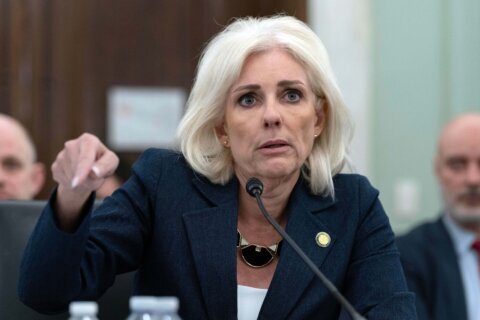
The University of Virginia has started its own coronavirus testing program.
According to University of Virginia health officials, the university is currently testing about 20 patients per day and hopes to raise that number to at least 80.
There is a national shortage of nasal and throat swabs needed to perform the test, but the university was able to kick-start its testing program thanks to university research labs that donated critical supplies.
“This was truly a remarkable team effort across the entire institution at an incredibly challenging time,” said Dr. K. Craig Kent, University of Virginia executive vice president for health affairs. “It was amazing to see how swiftly everyone rose to the challenge and made this happen in order to serve the community during this time of need.”
- Sign up for news alerts from WTOP
- Virus pandemic’s reach worsens; 10,000 dead worldwide
- DC economy may take unusual economic hit from the coronavirus
- University of Maryland schools move to distance learning, cancel graduations
- Coronavirus test results in DC, Maryland and Virginia
- Coronavirus FAQ: What you need to know
Testing is being performed at the University of Virginia Hospital and university clinics based on patient symptoms, recent travel history and potential exposure to other patients.
“A very deliberate decision was made by leadership to make this a top priority,” said Dr. Arturo Saveedra, who chairs the university’s dermatology department.
“Often we live in lines of reporting structure in complex institutions, and this is probably the first time I’ve noticed a real matrix where people were less concerned with chain of command and more concerned with getting things done for a real common goal,” Saveedra said.
This all comes as the Charlottesville area reported three new cases of the virus on Thursday, including a student living off-campus who is believed to have contracted the virus abroad.
The university’s new testing program is expected to result in more local positive cases in the coming days.
“U.Va. is now one of the few institutions across the country that has engineered its own test so that the diagnosis can be more readily made,” the university said in a statement.









